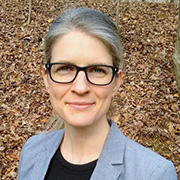A .gov website belongs to an official government organization in the United States.
A lock () or https:// means you've safely connected to the .gov website. Share sensitive information only on official, secure websites.

Chemical mechanisms are at the core of chemical transport models used to understand drivers of air quality and predict concentrations of pollutants in present day and future conditions. Mechanisms are traditionally focused on prediction of the criteria pollutant, ozone, and mass is often duplicated for purposes of predicting other endpoints such as the secondary organic aerosol (SOA) component of fine particle mass. In this work, Dr. Pye will present the recently developed Community Regional Atmospheric Chemistry Multiphase Mechanism (CRACMM) to show that coupling gas-phase radical chemistry and SOA formation can have benefits for representing the full range of atmospheric reactive organic carbon (ROC). These benefits include expanded coverage of ROC emissions, improved conservation of mass, and new SOA precursors not included in earlier generation mechanisms. This talk will also highlight recent applications of CRACMM in the Community Multiscale Air Quality (CMAQ) modeling system to understand ambient conditions such as those during the Fire Influence on Regional to Global Environments and Air Quality (FIREX-AQ) field campaign.
Dr. Havala O. T. Pye is a research scientist in the Office of Research and Development at the US Environmental Protection Agency. Dr. Pye's work focuses on fine particles and other airborne pollutants that can impact human health and climate change. Specifically, she develops emission estimation methods and representations of fine particles and organic species in the Community Multiscale Air Quality modeling system allowing for improved quantification of air pollution impacts in regulatory analysis. She is the lead scientist for development of the Community Regional Atmospheric Chemistry Multiphase Mechanism (CRACMM). More information about Dr. Pye and her work.
ALL Seminar attendees agree not to cite, quote, copy, or distribute material presented without the explicit written consent of the seminar presenter. Any opinions expressed in this seminar are those of the speaker alone and do not necessarily reflect the opinions of NOAA or CSL.